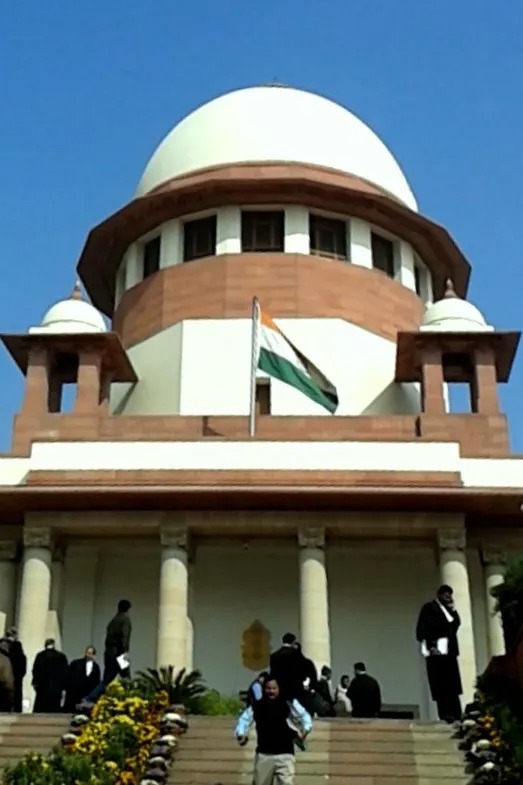@JUDGMENTTAG-ORDER
Honourable Mr. Justice K. Chandru
1. The petitioner is the Management of Sterlings Spinners Limited at P.Pudupatti, represented by its Deputy General Manager. In this Writ Petition, the challenge is made to a common order passed by the first respondent Labour Court, Trichy, at its Dindigul Camp, dated 25.04.2009 made in various I.Ds, starting from I.D.Nos. 184 of 2004 and ending with I.D.No.121 of 2007.
2. When the Writ Petition came up for admission on 18.11.2009, notice of motion was ordered. I.A.No.119 of 2007 in I.D.No.126 of 2003, raised by the petitioner and the said I.A. was tried along with several I.As. in various I.Ds., relating to the same petitioner Management and a common order was passed on 25.04.2009. By the impugned order, the Labour Court held that it is unnecessary to try any preliminary issue separately and all issues can be comprehensively tried by the Labour Court at the disposal of the main I.Ds.
3. It is seen from the records that the workmen employed in the petitioner Mill raised industrial disputes u/s 2(A)(2) of the Industrial Disputes Act,1947, including the second respondent. The grievance projected by the workmen was that a general dispute u/s 2(k) was pending conciliation before the Conciliation Officer and at that time, charges were framed against the workmen and despite request for postponing the enquiry, an ex parte enquiry was conducted and they were all dismissed from service. On the strength of the failure report given by the Conciliation Officer, claim statements were filed before the Labour Court and the Labour Court registered the case of the second respondent as I.D.No.126 of 2003 and notice was ordered to the Management.
4. The Management instead of filing a counter statement, filed an application stating that the disputes raised by the workmen were not maintainable. In the interim applications, counter statements were filed by the workmen contending that their dismissals were unjustified. Since similar interim applications were filed (as many as 39 applications), they were consolidated and a common enquiry was conducted. After hearing both sides, the Labour Court held that it was unnecessary to try any issue as a preliminary issue and all issues can be comprehensively dealt with at the time of the disposal of the main I.Ds. In this context, the Labour Court also referred to the judgments of the Supreme Court reported in
5. This Court does not find that any case made out for interfering with the impugned order. As already referred to the judgments cited supra, pointed out by the Court below, there is no obligation for the Court to frame and try a particular issue as a preliminary issue. When the Labour Court had clearly expressed itself that it would try all issues including the issue raised by the Management, the matter should have ended therein. It is not open to the Management to file such a Writ Petition.
6. Further, when the impugned order is a common order, dated 25.04.2009, there is no question of choosing to challenge in respect of one interim application by the Management. Since the finding rendered by the Labour Court in respect of other interim applications filed by the Management, is final and will operate as res judicata against the Management, the present attempt by the Management in challenging in relation to one application from a common order is also not permissible.
7. In this context, the Supreme Court while dealing with the filing of appeals from a common order and in which orders were passed, but were not appealed against, held that would operate as res judicata vide its Judgment in
76. One more factor has also to be noticed in regard to the civil appeals filed by Mr K.H. Siraj which, in our opinion, is also hit by res judicata. His writ petition in the High Court was OP No. 5219 of 2002. That was partly allowed without giving him any relief for a direction for appointment. On the other hand, the High Court set aside the selection of candidates occupying Ranks Nos. 60, 62, 64, 66, 68, and 70. The High Court filed Writ Appeal No. 1496 of 2004 before the Division Bench. Mr K.H. Siraj himself filed WA No. 1584 of 2004 against that part of the impugned judgment which was against him. Candidates occupying Rank No. 60, etc. who are affected by the judgment had themselves filed WAs Nos. 1498, 1510, 1526, 1527, 1541, 1588 and 1574 of 2004. All these appeals filed by the High Court and by these parties were allowed setting aside the judgment of the learned Single Judge. Mr K.H. Siraj''s appeal (WA No. 1584 of 2004) was dismissed. However, Mr Siraj has chosen to file appeals only against the decision in WA No. 1496 of 2004 filed by the High Court and WA No. 1584 of 2004 filed by himself and has not chosen to file any appeal against the decision in the other appeals, WA No. 1498 of 2004, etc. filed by the affected parties. The decision therein has become final and, therefore, operates as res judicata and Mr K.H. Siraj''s appeal is to be dismissed as such.
Therefore, the Writ Petition is misconceived and dismissed with costs of Rs.2,000/-(Rupees two thousand only) payable to the learned counsel for the second respondent. Consequently, the connected miscellaneous petition is closed. No costs.

